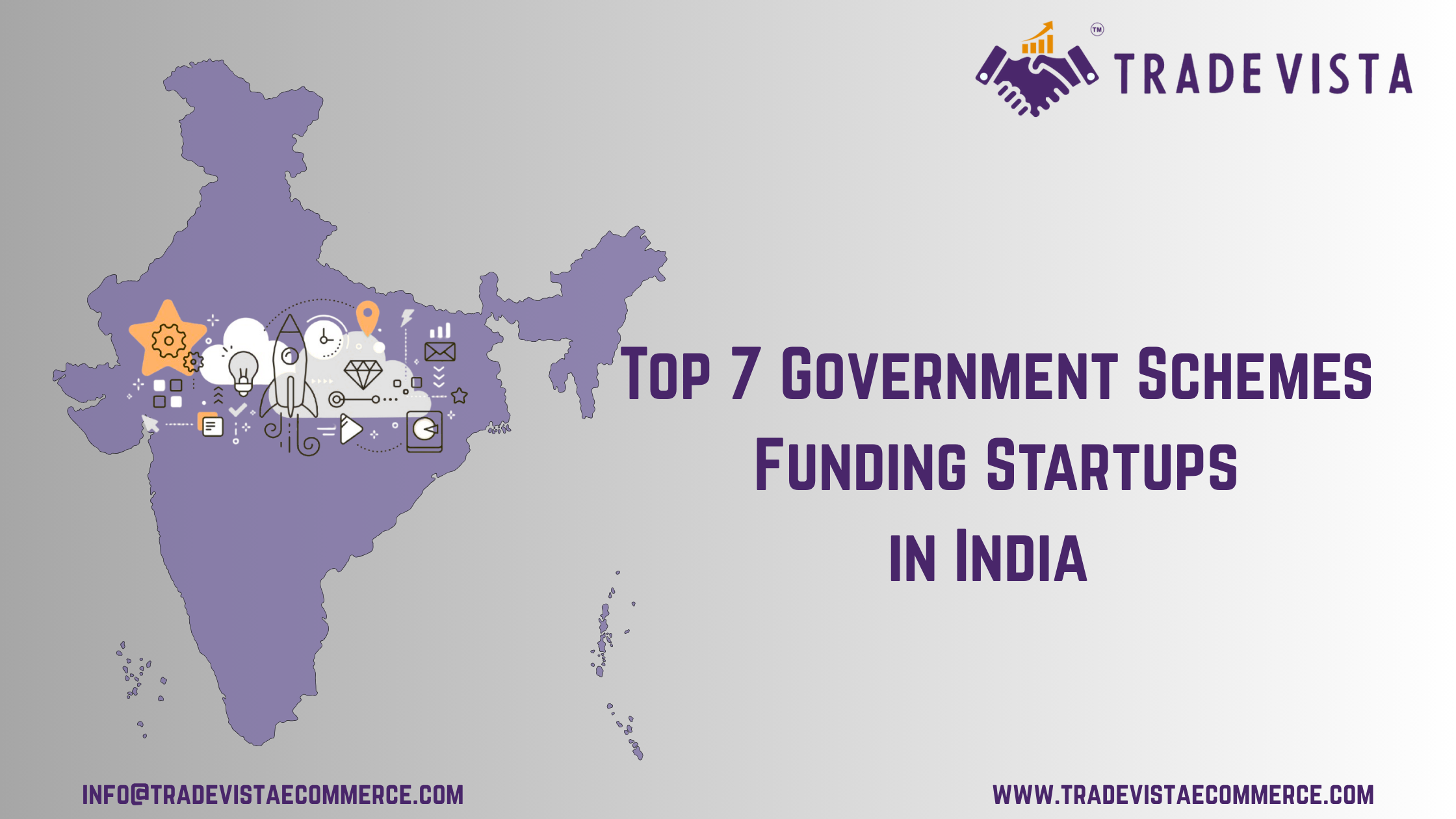India’s startup ecosystem has transformed over the past decade, becoming one of the most dynamic in the world. Yet, one of the most common hurdles early-stage entrepreneurs face is access to reliable funding. Recognizing this, the Indian government has introduced several high-impact schemes to nurture innovation, support small businesses, and accelerate economic growth. In this blog, we break down the 7 most impactful government schemes funding startups in India in 2025, detailing how they work, what they offer, and how you can benefit.
Why Government Support Matters for Startups
Government support plays a critical role in the startup ecosystem by:
- Bridging the early-stage funding gap.
- Providing credibility through recognition and official backing.
- Offering tax benefits, collateral-free loans, and incubation support.
- Helping startups innovate and scale, creating jobs and boosting economic activity.
Without these interventions, many startups would struggle to survive in their initial years.
Overview of the Top Government Schemes
Here’s a quick summary of the major schemes:
Scheme Name | Focus Area | Benefits Offered | Target Audience |
PMMY | Micro loans | Loans up to ₹10 lakh | Small businesses, traders |
TIDE 2.0 | Tech startups | Funding, incubation, mentoring | Tech entrepreneurs |
The Bharat Project | Rural innovation | Funding and regional development support | Rural innovators |
AIM | National innovation mission | Incubation, funding, innovation programs | Startups, innovators |
Startup India Scheme | Startup recognition | Tax breaks, funding, faster compliance | Registered startups |
CGTMSE | Credit guarantee | Collateral-free loans via banks | Micro, small enterprises |
Make in India | Manufacturing & innovation | Sector-specific incentives, support | Manufacturing startups |
Detailed Breakdown of Each Government Scheme
PMMY (Pradhan Mantri Mudra Yojana)
The PMMY scheme offers microloans up to ₹10 lakh to non-corporate, non-farm small/micro enterprises.
It has three categories:
- Shishu (up to ₹50,000)
- Kishore (₹50,001 to ₹5 lakh)
- Tarun (₹5 lakh to ₹10 lakh)
Who can apply for PMMY (Pradhan Mantri Mudra Yojana)?
Small shopkeepers, artisans, traders, and micro-units. Applications can be made through banks, NBFCs, or online portals.
TIDE 2.0 (Technology Incubation & Development of Entrepreneurs)
This scheme supports tech startups, especially those in emerging areas like IoT, AI, blockchain, and cybersecurity.
It offers:
- Funding assistance.
- Access to incubation centers.
- Mentorship and networking opportunities.
Eligible startups can apply through recognized incubators under the scheme.
The Bharat Project
The Bharat Project is designed to encourage startups to solve rural challenges and drive inclusive development.
It provides:
- Financial assistance.
- Partnerships with local stakeholders.
- Opportunities to pilot innovations in rural settings.
Ideal for startups working in agri-tech, rural health, education, or renewable energy.
AIM (Atal Innovation Mission)
A flagship innovation program, AIM runs initiatives like Atal Incubation Centers (AICs), Atal Tinkering Labs, and Grand Challenges.
It supports startups by:
- Providing funding for innovation and R&D.
- Connecting startups to mentors and industry leaders.
- Helping scale high-potential ideas.
Applications can be submitted via the official AIM portal.

Startup India Scheme
Launched to create a robust startup ecosystem, this scheme offers:
- Recognition as an official startup under DPIIT.
- Tax exemptions for three consecutive years.
- Fast-track patent filing and easier compliance.
- Access to the Startup India Seed Fund Scheme.
Startups can apply for recognition through the Startup India portal.
CGTMSE (Credit Guarantee Fund for MSEs)
This scheme provides collateral-free loans to micro and small enterprises (MSEs).
Benefits include:
- Loans up to ₹2 crore.
- Reduced credit risk for lenders, making it easier for startups to access funds.
- Coverage for both term loans and working capital.
Startups can approach any participating bank or NBFC.
Make in India
A national initiative promoting manufacturing and innovation, Make in India offers:
- Sector-specific incentives.
- Policy support.
- Access to global supply chains and foreign investment.
Manufacturing startups can explore partnership opportunities and government tenders under this initiative.
How Startups Can Maximize Government Funding
- Prepare a strong business plan to showcase feasibility and scalability.
- Engage with incubators to gain mentorship and improve your funding pitch.
- Ensure compliance with scheme requirements, including documentation and reporting.
- Network actively to increase visibility and access opportunities.
Challenges and Realities
While these schemes are powerful, startups must be prepared for:
- Selective approvals due to high competition.
- Lengthy paperwork and bureaucratic processes.
- There is a need for strong execution and resilience to deliver on promises post-funding.
India offers a vibrant ecosystem of government-backed funding schemes that can transform startups’ journeys. Entrepreneurs can unlock financial support, expert guidance, and the credibility needed to scale by tapping into the right programs.
Ready to apply for these schemes or need expert help?
FAQs on Government Scheme
Can foreign-owned startups in India apply for these government schemes?
Many schemes prioritize Indian-owned or Indian-registered startups. Foreign-owned startups should check specific eligibility criteria before applying.
Do I need a registered company, or can I apply as an individual founder?
Most schemes require a registered legal entity (like a private limited company or LLP), not just an individual.
How long does it typically take to get approval or funding?
Timelines vary: Some schemes process within weeks, while others may take several months, depending on due diligence and demand.
Are there sector-specific schemes beyond these 7?
Yes! India offers targeted schemes for biotechnology, renewable energy, agritech, and defense innovation.
Can I apply for multiple schemes at once?
Yes, generally, provided you meet the eligibility requirements for each. However, check for overlap rules to avoid duplication of benefits.
Do government schemes offer grants, or are they mostly loans?
Both exist. Some schemes offer pure grants or seed funding, while others provide loans, credit guarantees, or tax incentives.
What are the common reasons applications get rejected?
Common reasons include incomplete documentation, unclear business models, ineligible sectors, or lack of innovation.
Do startups need to pay back government funding?
Grants typically don’t require repayment, but loans and credit guarantees must be repaid under agreed terms.
Are there special schemes for women entrepreneurs?
Yes, several schemes like Stand Up India focus specifically on supporting women-led startups.
Where can I get professional help to apply for these schemes?
You can work with consultants, incubators, or startup advisory firms like Trade Vista, specializing in government scheme applications.



